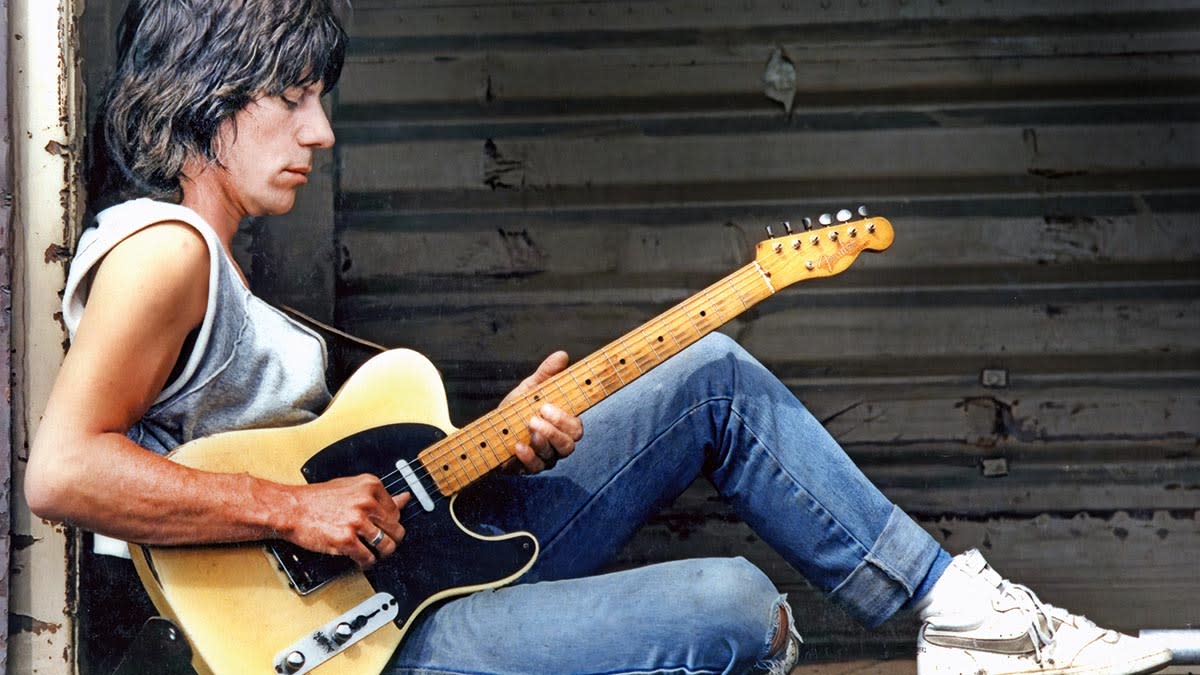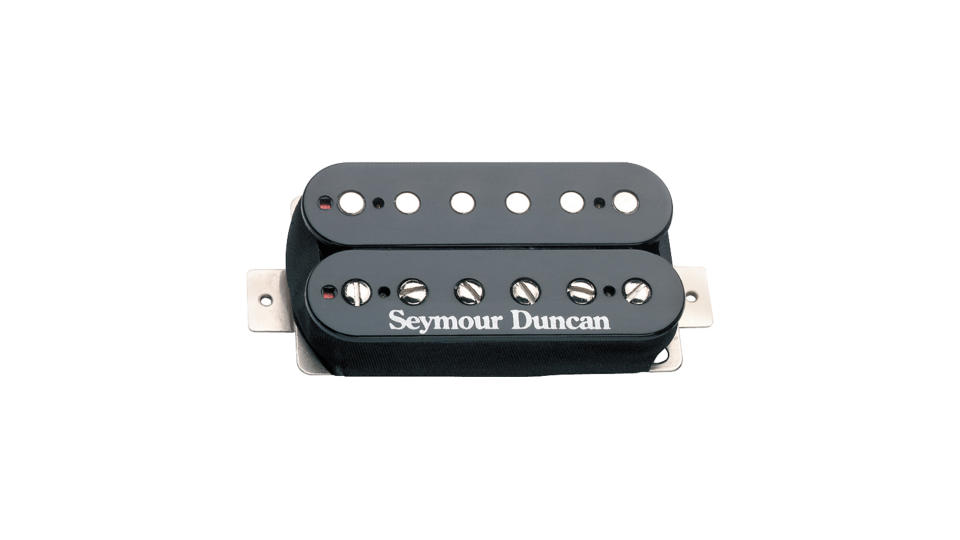How Jeff Beck and Seymour Duncan created humbucker magic with the classic JB pickup

- Oops!Something went wrong.Please try again later.
- Oops!Something went wrong.Please try again later.
One of the many, many guitarists obsessed with Jeff Beck was a young Seymour Duncan. Here’s what he told this writer back in the ’90s: “I first heard Jeff Beck in the summer of ’65 – I was playing in a talent show with a local band. The local radio station played a recording of Heart Full Of Soul by The Yardbirds, their second hit. The unique guitar sound was from Jeff Beck. I tracked down many of their recordings and saw them performing on 60s TV shows such as Hullabaloo, Shindig! and Ready Steady Go!.
“I’d noticed Jeff was playing a Fender Telecaster but without the neck pickup,” he added, “making it an Esquire [from 1954]. Originally it had a white single-layer scratchplate that Jeff changed to a black phenolic one. He’d bought the guitar for $60 [or £75, according to Jeff! – Ed] from John Maus [aka Walker], guitarist with The Walker Brothers when they toured England in the mid-’60s. Years later, John visited my workshop in Santa Barbara and told me he’d contoured the front and back of the body to make it feel more like a Stratocaster.”
Continuing the story in Guitarist back in 2005, Evan Skopp, a long-time employee of Seymour Duncan, related the tale: “In 1972, the late American country blues guitarist Roy Buchanan passed through Ohio where Seymour had achieved cult status as ‘The Midwest’s Eric Clapton.’ Buchanan told the 20-something Seymour, ‘Come with me to England. They’re gonna love you there!’
“Soon, Seymour found himself burning it up in London’s bars and clubs by night. By day, he performed guitar repair for Ivor Arbiter at the Fender Soundhouse on London’s Tottenham Court Road. It was during those days that Seymour struck up a friendship with his guitar hero, Jeff Beck – and had the honour of introducing Jeff to Roy Buchanan.”

The story continues that Jeff’s favourite Les Paul was sent to be repaired “with a volume control problem”, Seymour told us. “[But] when he got the guitar back the pickups had covers on them, and when they were removed the original ‘Patent Applied For’ pickups had been replaced with new Gibson humbuckers. I felt real bad and wanted to get Jeff a guitar with the tone of a Les Paul.
“I couldn’t afford a Les Paul so I came up with the ‘Tele-Gib’, a Tele with two humbuckers, the bridge plate cut to take the humbucker but retain the three-piece early ’50s saddles. The pickups were ’59 Patent Applied For humbuckers that came out of a broken Gibson Flying V that once belonged to Lonnie Mack. Someone had messed with the coils so I rewound them as prototypes for Jeff. He liked [the ‘Tele-Gib’], too, and started recording with it in ’74 for the Blow By Blow album.”
Along with calling the guitar the ‘Tele-Gib’, Seymour nicknamed the bridge pickup ‘JB’. Evan explained: “The neck pickup was originally called ‘JM’ after the hot-rod racer character John Milner in the classic film American Graffiti – one of Jeff’s then-favourites. A few years later, ‘JM’ would morph into ‘Jazz Model,’ which is what it’s still called today.”
According to both Seymour and Evan, it’s the ‘Tele-Gib’ you hear on Stevie Wonder’s Cause We’ve Ended As Lovers, a key track on Blow By Blow. “Jeff dedicated it to the man responsible for Seymour coming to England: none-other-than Roy Buchanan,” said Evan.
Seymour then built another ‘Tele-Gib’ for himself and wound the second set of JB and JM pickups. Interestingly, Evan told us at the time that both of those ‘Tele-Gibs’ used 250kohm pots, “which tend to bleed off the pickups’ treble response and provide a smoother taper”, he explained. Not the usual 500k values used by most of us with humbuckers.
“Many of England’s top guitarists sought out Seymour’s JB model for their humbucker-equipped guitars [as a result of the success of Blow By Blow],” said Evan. “They found that the JB gave increased output (16.4kohms) without sounding harsh or dark like other high-output pickups of the mid-70s. When Seymour returned to the USA the next year, his reputation as a pickup designer – and the JB’s reputation as a remarkable pickup – preceded him.”
When Seymour launched his pickup company in 1976, the JB became the SH-4 JB, and nearly 50 years later it remains one of Seymour Duncan’s best-selling pickups. Although we’ve all called it the ‘Jeff Beck’, officially Seymour Duncan will tell you those letters stand for ‘Jazz-Blues’. Despite their friendship, Seymour and Jeff never had any official product endorsement agreement, though Seymour was famously gifted the ’54 Esquire that he had obsessed over as a young guitarist.
“A few days after I’d given Jeff the ‘Tele-Gib’,” said Seymour, “his manager Ralph Baker turned up with three guitars in a cloth bag: ‘Jeff wants you to take your pick.’ There was a ’51 Tele, a mid-’50s Strat and – my favourite guitar – Jeff’s ’54 ‘Yardbirds’ Esquire. That’s how I got it!”

